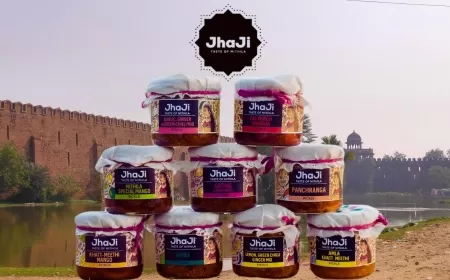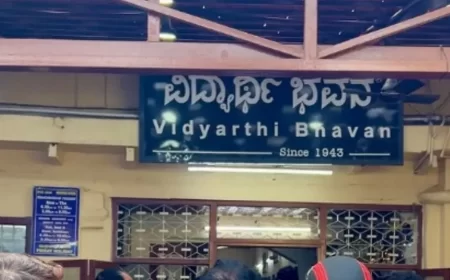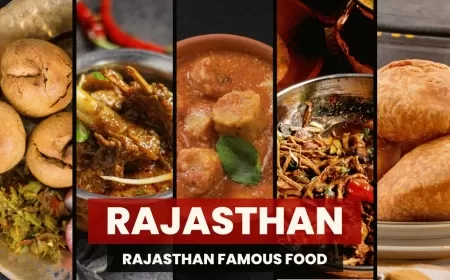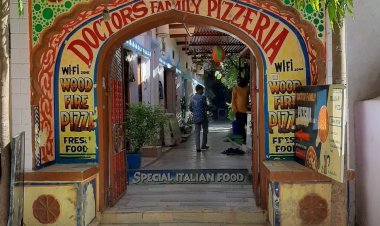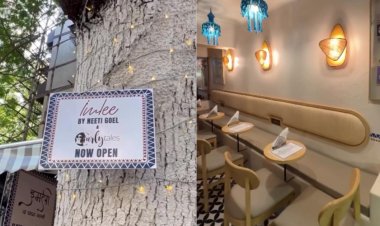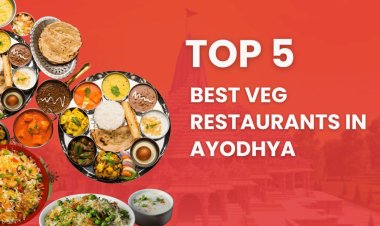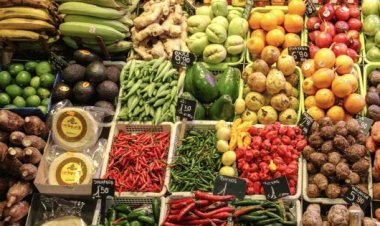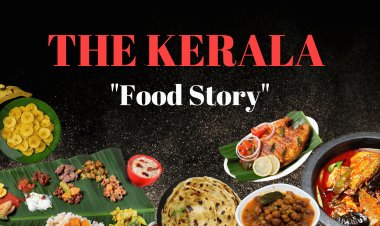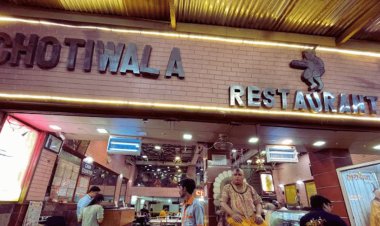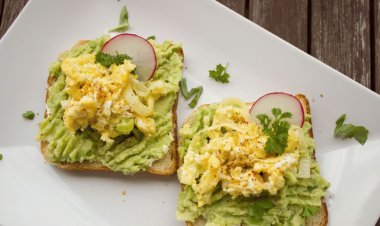Food Delivery Startups Sprout, Banking on ONDC for Rapid Growth
The food delivery landscape is experiencing a proliferation of fresh startups, each aiming to capitalize on the increasing demand for convenient meal solutions. However, these emerging players are placing their aspirations for significant expansion on the Office of the National Drug Control Policy (ONDCP) as they seek to leverage its potential for rapid scaling.

The food delivery industry has witnessed a rapid surge in recent years, fueled by changing consumer preferences and the convenience-driven culture of the digital era. Capitalizing on this trend, a wave of food delivery startups has emerged, aiming to capture a share of the market and meet the evolving demands of customers. However, these new players are pinning their hopes on a strategic partnership with the Office of the National Drug Control Policy (ONDCP) to achieve accelerated growth and scalability. The rise of food delivery startups can be attributed to several factors. Firstly, the widespread availability of smartphones and internet connectivity has made ordering food online easier and more accessible than ever before. Coupled with busy lifestyles, this has led to a significant shift in consumer behavior towards convenient and hassle-free meal solutions. Recognizing the potential of this market, entrepreneurs have seized the opportunity to innovate and carve out their own space within the industry. The food delivery industry is witnessing a fresh influx of players who are introducing innovative changes to their business models, including partnering with the government-established private not-for-profit company Open Network for Digital Commerce (ONDC).

One such player that recently entered the scene is Waayu, launched by Anirudha Kotgire and Mandar Lande in Mumbai last month. What sets Waayu apart is its zero-commission model for restaurants, which has proven to be an enticing proposition. Instead of charging commissions, Waayu earns revenue through a one-time enrollment fee of Rs 3,650 plus GST (Goods and Services Tax) and a monthly subscription fee of Rs 1,000 from each restaurant that signs up. Currently, Waayu boasts a roster of 1,000 restaurants in Mumbai and Pune and is gearing up to expand into other cities, ready to take on industry giants like Zomato and Swiggy. Encouraged by the overwhelming interest they have received, Kotgire and Lande stated that they plan to onboard an impressive 3,000-5,000 restaurants per month, including well-known brands such as McDonald's, KFC, and many others. Their primary focus will be on Tier 1 cities, although they have not specified a precise timeline for expansion. As Waayu's business model gains traction, it offers an attractive alternative for restaurants seeking to minimize their expenses without compromising on the benefits of food delivery platforms. By eliminating commissions and instead opting for a fixed enrollment fee and subscription charges, Waayu aims to provide a more financially viable solution for restaurant owners. This expansion plan reflects the growing demand for food delivery services and the need for a competitive market that offers diverse options to both restaurants and consumers. By aligning with the ONDC and implementing an innovative revenue model, Waayu is poised to make a significant impact in the food delivery industry, challenging established players and offering a unique value proposition to both restaurant partners and customers. With the goal of expanding into Tier 1 cities and securing partnerships with renowned restaurant chains, Waayu is poised to disrupt the market and provide a compelling alternative to existing food delivery platforms. As the company continues to onboard more restaurants and expand its reach, it remains to be seen how it will fare against the industry giants and carve out its own space in the competitive food delivery landscape.
Differential Revenue Streams
Thrive and Waayu, two emerging players in the food delivery industry, are exploring differentiated revenue streams and eyeing integration with the Office of the National Drug Control Policy (ONDC) for future growth. Thrive is experimenting with various monetization models and charges a 3 percent commission for direct ordering and between 10 percent and 14 percent for delivery, significantly lower than competitors Zomato and Swiggy, which charge around 23-25 percent. Waayu, like Thrive, currently operates in Mumbai with plans to expand to other cities. Both startups are considering becoming seller apps on the ONDC platform to leverage its visibility and boost order volumes. As they focus on scaling their businesses, they aim to increase subscription fees and rely on word-of-mouth marketing rather than massive capital infusion. The industry, including restaurant associations, is closely watching the success and acceptance of this new model that puts restaurants in control of customer data and preferences, offering better insights and inventory management.
Adapting or evolving
Survival in the food delivery industry demands adaptation and innovation. As restaurants continue to voice their concerns over the current system's sustainability, new players face an uphill battle. Swiggy and Zomato have already established a seamless user experience, making it challenging for newcomers like Waayu and Thrive. These platforms opt for a fragmented delivery chain, involving third-party aggregators like Dunzo and Shadowfax, with delivery costs passed on to customers. Waayu takes it a step further by allowing restaurants to deliver orders themselves, granting them customer data and preferences. Previous attempts, such as the 'Logout' and 'Order Direct' movements, aimed to increase restaurant autonomy but faced challenges like data ownership, high commissions, and inflexible tech stacks.
Will ONDC be a game-changer for food delivery startups?
It remains uncertain, as the order volumes on the ONDC platform are significantly smaller compared to Swiggy and Zomato. While ONDC currently averages around 9,000 retail orders per day, or 270,000 orders per month, changes in the incentive structure and reduced discounts are expected to impact these numbers. Analysts highlight that achieving scale is crucial in the online food market, a feat that Swiggy and Zomato took over a decade to accomplish. Additionally, the slowdown in monthly transacting users and a challenging global food delivery market pose further obstacles for new players. Critics argue that ONDC, in its present state, is unlikely to disrupt the industry or pose a threat to established players. Analysts at JM Financial express skepticism, emphasizing that ONDC's current form is far from shaking up the online food-tech sector.
Collaborating with the ONDCP also brings a sense of credibility and trust to these startups. The association with a reputable government agency known for its commitment to quality control and public welfare enhances their reputation among customers. This, in turn, helps attract a larger customer base and build trust in the brand, a crucial element for sustained growth and success in the competitive food delivery market. While partnering with the ONDCP provides startups with the foundation for growth, it is essential for these companies to develop their unique value propositions and differentiate themselves in the market. By focusing on specialized cuisines, unique offerings, or targeted customer segments, startups can stand out from their competitors and leverage the scale provided by the ONDCP to gain a competitive advantage.
The rise of food delivery startups in recent years has transformed the way people access and enjoy their meals. With their innovative ideas and localized offerings, these startups are poised to disrupt the traditional food delivery landscape. By forging strategic partnerships with the ONDCP, they are able to tap into a robust logistics network, gain regulatory compliance support, and build credibility among customers. As these startups continue to sprout, the collaboration with the ONDCP holds the potential for rapid growth, scalability, and long-term success in the dynamic food delivery industry.
What's Your Reaction?
 Like
0
Like
0
 Dislike
0
Dislike
0
 Love
0
Love
0
 Funny
0
Funny
0
 Angry
0
Angry
0
 Sad
0
Sad
0
 Wow
0
Wow
0














